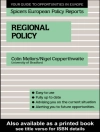Bringing together nine leading writers and activists from around the world, this book explores the origins of a new age of Empire.
Writers including Walden Bello, Jayati Ghosh, Kate Hudson, Boris Kagarlitsky and Alan Freeman offer a wealth of factual evidence showing that globalisation has driven apart peoples, classes and nations, shaping and reshaping key regions of the world. Challenging the idea that it is inevitable, they argue that its economic contradictions have thrown the world order that sustained it into crisis.
Globalisation’s opponents are shaping a new intellectual tradition. For the first time, the book brings together the critiques thrown up by resistance to globalisation, to war, and to imperialism. Free from ideology and dogma, showing how the peace and anti-globalisation movements can join forces and face the coming period of world history.
Tabla de materias
1. Introduction: World empire – or a world of empires?
2. The inequality of nations
3. The Crisis of the Globalist Project and the New Economics of George W. Bush
4. Imperialist Globalization and the Political Economy of South Asia
5. Globalization and the New World Order: The new dynamics of imperialism and war
6. The Crisis of Global Capitalism: how it Looks from Latin America
7. Facing Global Apartheid
8. Unity, diversity and international cooperation: The US war drive and the anti-war movement
9. From Global Crisis to Neo-Imperialism: the Case for a Radical Alternative
Notes on contributors
Index
Sobre el autor
Boris Kagarlitsky is a senior research fellow in the Institute for Comparative Political Studies, the Russian Academy of Sciences. He was a political prisoner under Brezhnev and latterly has been an adviser to the Chair of the Federation of Independent Trade Unions of Russia. He is the author of Russia Under Yeltsin and Putin (Pluto, 2002), The Politics of Empire (Pluto, 2004) and Empire of the Periphery (Pluto, 2007).












